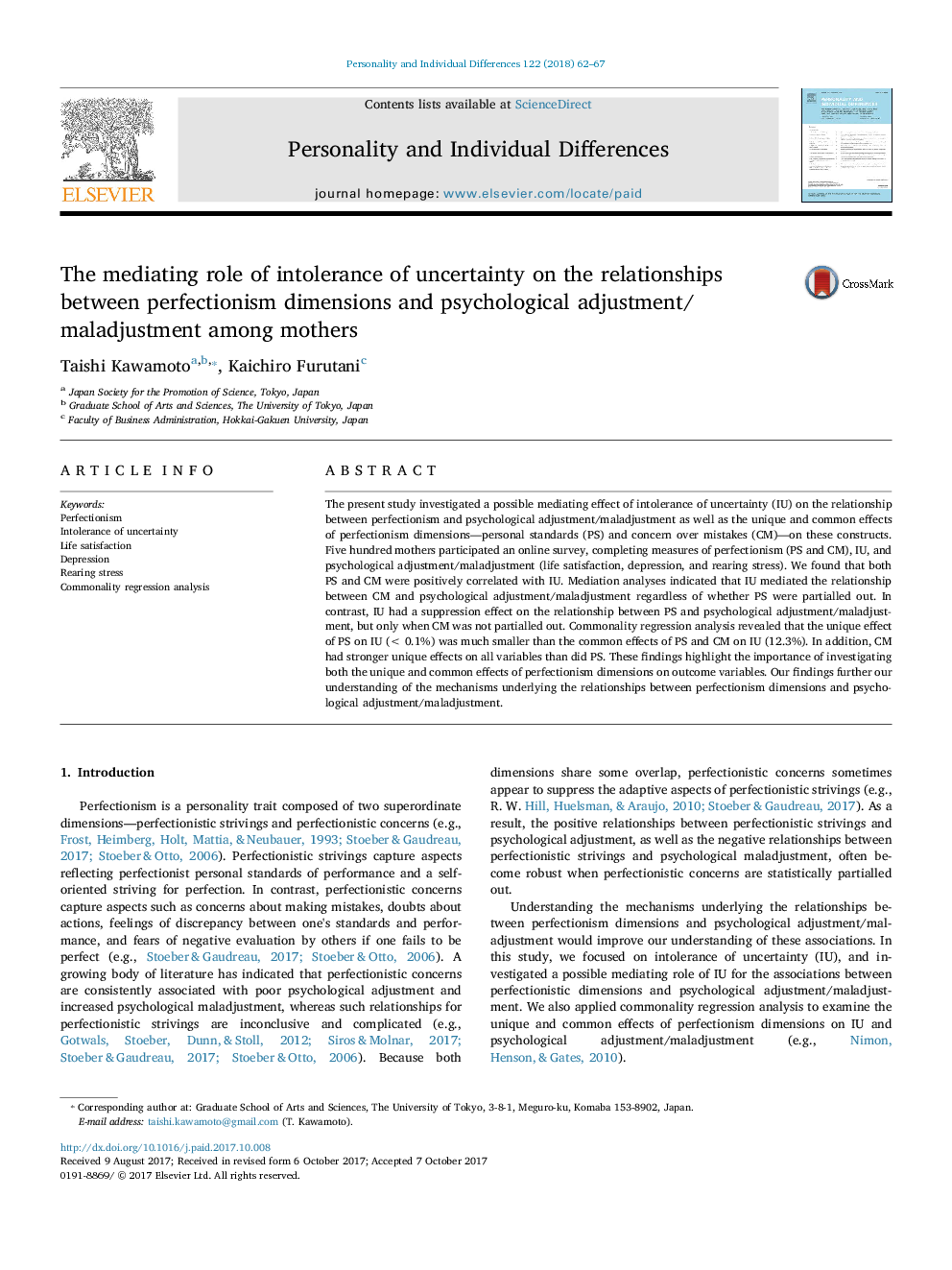ترجمه فارسی عنوان مقاله
نقش میانجی از عدم تحمل عدم قطعیت در روابط بین ابعاد کمال گرا و تنظیم / اصلاح روانشناختی مادران
عنوان انگلیسی
The mediating role of intolerance of uncertainty on the relationships between perfectionism dimensions and psychological adjustment/maladjustment among mothers
| کد مقاله | سال انتشار | تعداد صفحات مقاله انگلیسی |
|---|---|---|
| 120710 | 2018 | 6 صفحه PDF |
منبع

Publisher : Elsevier - Science Direct (الزویر - ساینس دایرکت)
Journal : Personality and Individual Differences, Volume 122, 1 February 2018, Pages 62-67
ترجمه کلمات کلیدی
کمال گرایی، عدم تحمل عدم اطمینان، رضایت از زندگی، افسردگی، پرورش استرس، تجزیه و تحلیل رگرسیون مشترک،
کلمات کلیدی انگلیسی
Perfectionism; Intolerance of uncertainty; Life satisfaction; Depression; Rearing stress; Commonality regression analysis;

